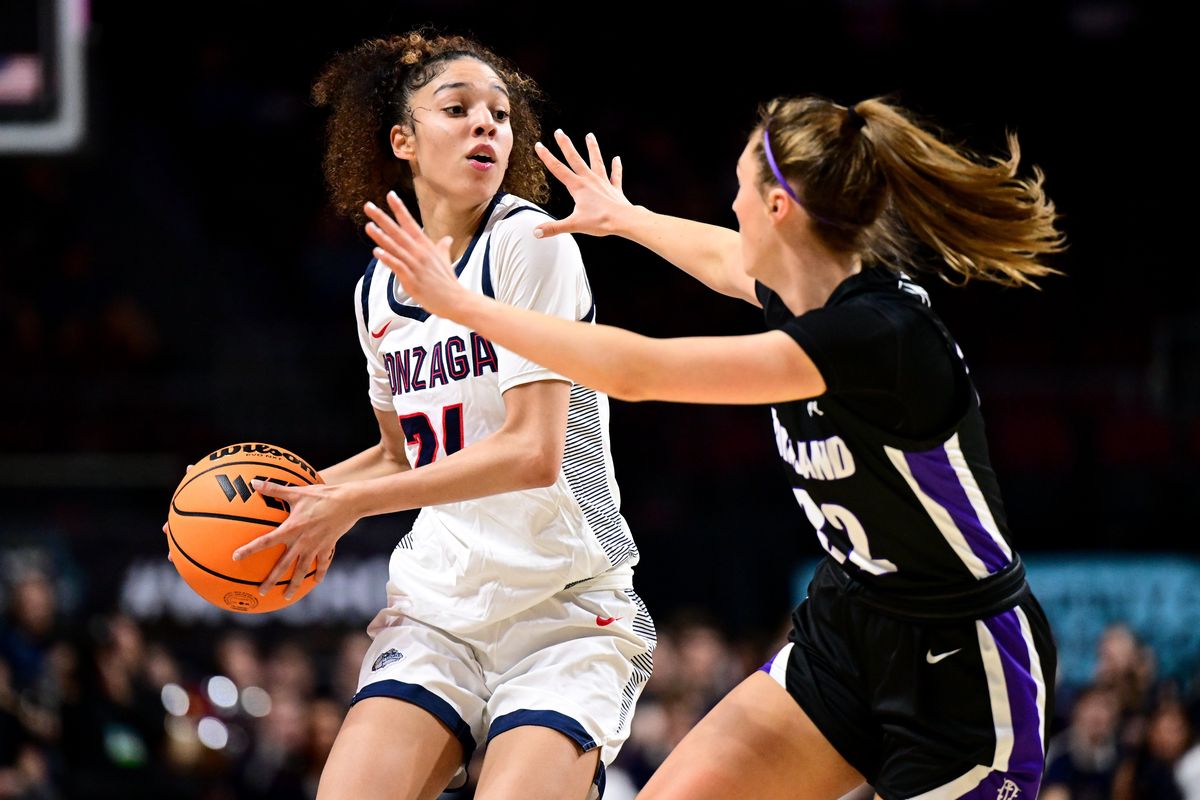Gonzaga women look to come out with ‘ferocity’ in NCAA Tournament after setback against Portland

LAS VEGAS – Picking up the pieces is a lot easier when you still have time to put them back together.
For that reason, the Gonzaga women’s basketball team seemed to recover remarkably well after Tuesday’s 64-60 loss to Portland in the West Coast Conference Tournament title game.
In the postgame media session, head coach Lisa Fortier and players Yvonne Ejim and Eliza Hollingsworth talked about what went wrong (turnovers, mostly) and the character-building lessons of defeat.
The five days until Selection Sunday “give us a little bit more to think about,” Ejim said. “We don’t want to brush this game off so fast.
“We need to learn from it, dissect it, take stuff away from it – and continue growing. Just because we’re in this position today doesn’t mean we’re in this position tomorrow.”
At that point, a cynic might have noted out that the Zags’ projected seeding position would be lower Wednesday – and it was.
Late Tuesday night, ESPN bracketologist Charlie Crème dropped Gonzaga from a No. 8 seed to a No. 9. Crème’s latest bracket still has the Zags traveling to Columbia, South Carolina, home of the defending champions.
The Zags also took a tumble in the NCAA NET rankings, from 41st to 45th. That roughly translates to a No. 11 seed and a potential play-in game – a far cry from the No. 6 seeding the Zags might have earned with a win.
Spirits got a pick-me-up when a reporter pointed out that every GU loss this season has been followed by a substantial win streak.
Following a loss at Stanford, the Zags won 14 straight. The hiccup at Santa Clara was followed by a seven-game run that ended on Tuesday.
A new winning streak could be just around the corner – just play better, Ejim and Hollingsworth said.
“Coming out with the ferocity that we need,” Hollingsworth said.
The Zags had plenty of that on Tuesday. Bodies were flying all afternoon, and Gonzaga enjoyed a plus-15 margin on the boards.
But decision-making was poor. Ill-considered passes were swallowed up by double-teams in the paint. When the Zags got the ball inside, they delayed taking the shot against Portland’s 6-foot-7 post, Lucy Cochrane.
“I think we were a little bit hesitant,” Fortier said after the Zags committed 24 turnovers. “There were some balls I wish we would have shot the first time. And we overpassed a little bit.”
This year’s team is talented and multifaceted enough to overcome that setback. And with the return of Kaleigh Truong and Maud Huijbens, the Zags are also deeper.
But that brings its own set of challenges, as Fortier and her staff segue back to a more-choreographed rotation. No Zag played more than 28 minutes, a big drop from the 32 to 35 that fans saw for most of the season.
That’s another task for the coaches: balancing rhythm and fatigue for the starters.
The biggest challenge is mental, Fortier contended.
“We talk about choices all the time, and we always want to choose the one that’s wanting to get better,” she said.
Fortier talked about people – not necessarily on the team – who are “tired of the season.”
“We don’t want to be that team,” she said. “We want to see what things we can fine-tune.”